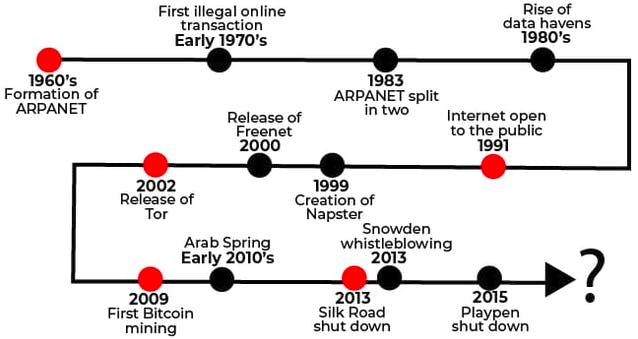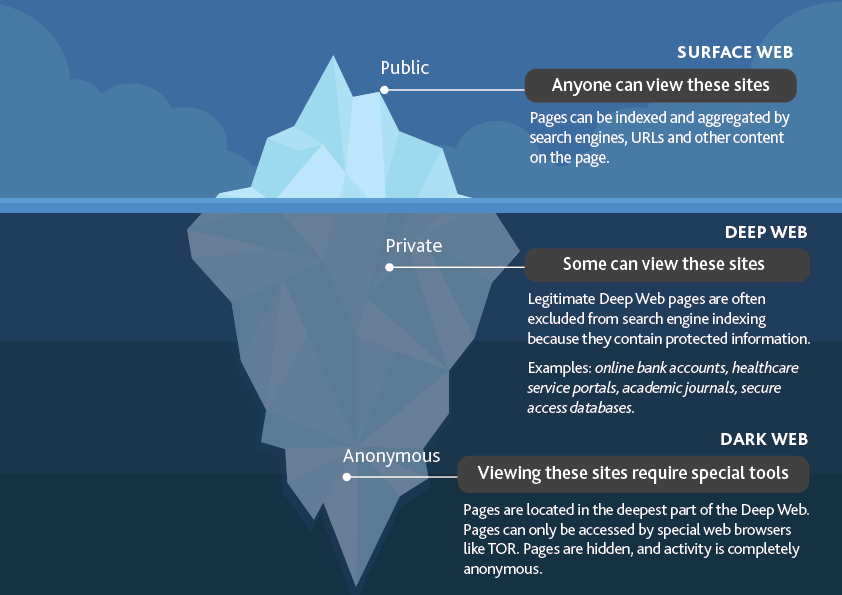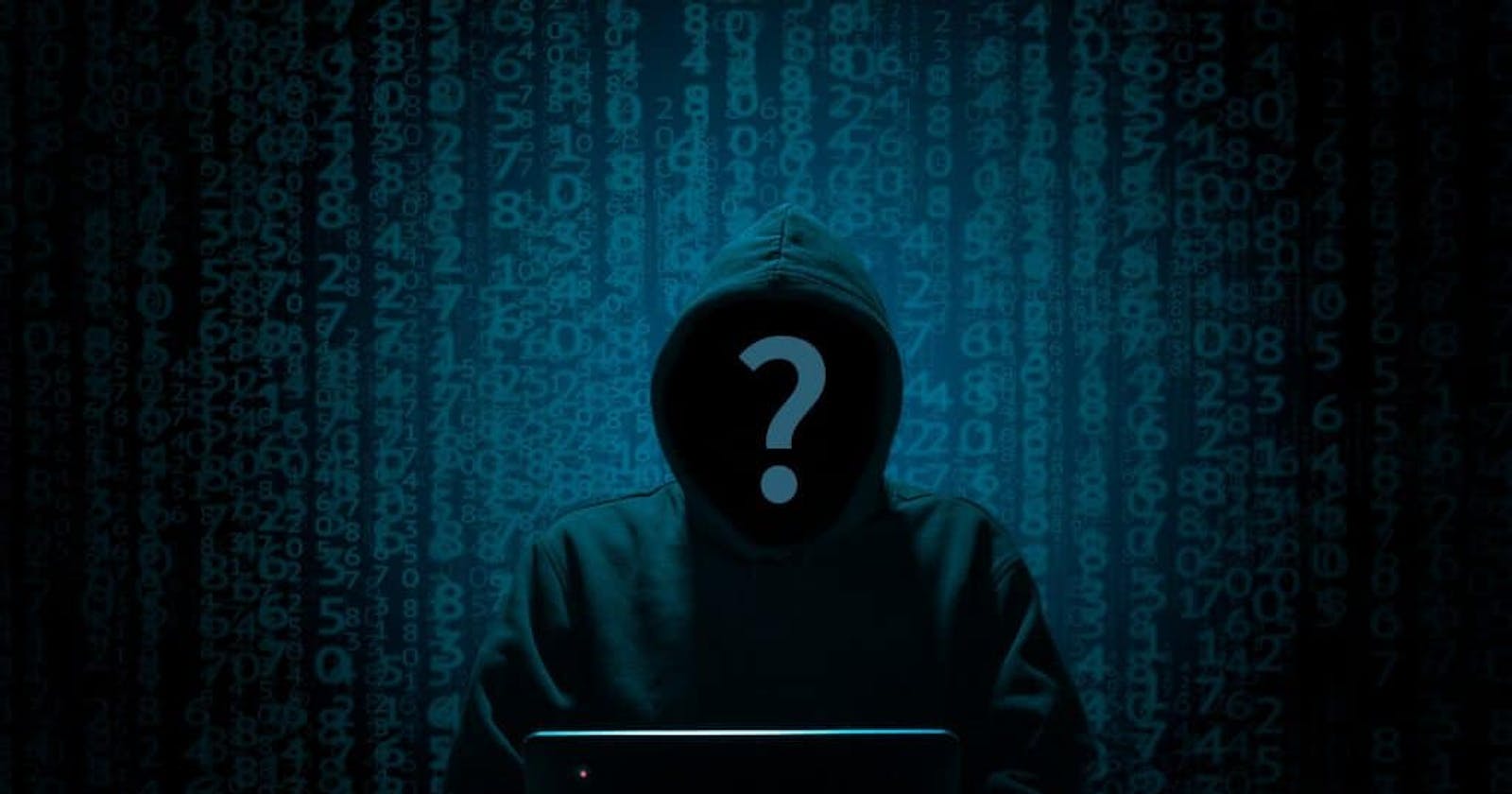Are you under the illusion that your online life is private and secure? Think again! Your personal information is constantly at risk of being exposed to cybercriminals, hackers, and government surveillance. Ignoring this harsh reality could lead to devastating consequences.

Long ago, I realized that the surface web we browse daily is only a fraction of the total content of the internet. During an online conversation, I learned about the dark web, which is about 500 times bigger than the surface web. This piqued my interest and compelled me to learn more. In this article, we will dive deep into the intricacies of the dark web and learn more about this mysterious side of the internet.
What is Dark Web?
Dark Web is a hidden part of the internet that is not accessible through conventional search engines like Google. The dark web is popularly known as the hotbed of criminal deals and scenarios like trades of data and buying and selling weapons, drugs, etc., but there is much more to it than that. The Dark Web is also home to a diverse range of legal, and non-legal communities and services, from privacy activists and whistleblowers to journalists and online forums for marginalized communities.

The Dark Web emerged as a result of the need for online anonymity and privacy, with the development of the Tor network by the U.S. Naval Research Laboratory in the mid-1990s. Another anonymous network, Freenet developed in 2000, further contributed to the evolution of the Dark Web and the desire for privacy and anonymity. However, it wasn't until The Silk Road marketplace, which allowed users to buy and sell illegal goods using cryptocurrencies, gained significant attention in 2011 from the public.
The primary focus of the Dark Web is to provide users with anonymity and privacy, shielding their identities and online activities from surveillance, censorship, and other forms of interference. To access the Dark Web, users typically need to use a specialized browser like Tor that can help them conceal their IP address and location from prying eyes.
Surface Web Vs. Dark Web Vs. Deep Web
The internet can be divided into three main components: the surface web, the deep web, and the dark web. The term dark web and the deep web is used interchangeably sometimes but they are different. The surface web is also called as visible web. Let's learn how are they different from each other.
The surface web is part of the internet we all use daily. It covers 5% of the internet. Right now, you are viewing this blog on the surface web. Everything you use like Facebook, Twitter, and Amazon; any websites you frequently can access through Google is the surface web.

The deep web is 90% of the total internet. It can not be accessed by using search engines and it's usually hidden behind passwords or paywalls. This is where we can find sensitive information that's not available to the general public. For example, email inboxes, drafts before a post is made publicly available, a private company's internal database, banking accounts, information, etc.
The dark web is 5% of the total internet. This is a hidden part of the internet that can only be accessed through specialized browser like the Tor browser. While the dark web is frequently linked with illegal activities such as the sale of stolen data and drug trafficking, it is not entirely negative. This hidden corner of the internet can also provide a secure platform for individuals like activists, journalists, and whistleblowers who need to share information without the fear of retaliation.
How To Access the Dark Web?
Accessing the chaos supported by anonymity is not that easy. We need a special browser called "Tor browser" or "I2P browser". A free and open-source web browser that supports anonymous online communication is the Tor Browser. Your internet traffic is routed through a network of servers located all over the world, making it difficult for anyone to track your online activity or pinpoint where you are.

You can download the Tor browser from the official site of the Tor Project. Although Tor functions well, browsing can occasionally be unpredictable, unreliable, and painfully slow, much like the dark web itself. Through Tor, to experience the dark web, you can use search engines like The Hidden Wiki.
Websites on Dark Web
Are you curious about the dark web and the layout of its websites? Although they look similar to regular websites, dark websites have some distinct differences. For instance, dark web websites have a distinctive naming structure that ends in .onion, as compared to typical websites that have a .com or .co domain suffixes. These websites are part of a Tor network-exclusive hidden service that provides anonymity. It is impossible to access these sites without an appropriate proxy.
The websites on the dark web often have naming structures that are jumbled, which makes it hard to remember their URLs. For instance, the address of the well-known shopping website Dream Market is almost unreadable: "eajwlvm3z2lcca76.onion."
![]()
There are a few surface websites that help you find dark website links. Some of them are Ahmia, Onion Search Engine, and Tor Taxi. You can also find a few GitHub repositories or tools filled with links to dark websites. Some of those tools are Onionoff, Onion-scan, and Onion-nmap. You can find Reddit communities for discussing dark web related stuff.
It's critical to remember that many dark websites are operated by con artists who frequently switch locations to avoid getting caught. Even websites that have been in business for a year or more may suddenly cease to exist if the owners decide to flee with the escrow funds from their clients.
Criminal Activities on Dark Web
Over the course of five weeks in 2015, researchers Daniel Moore and Thomas Rid from King's College in London examined 2,723 active dark websites and discovered that 57% of them hosted illegal content. In 2019, Dr. Michael McGuires from the University of Surrey conducted a study titled "Into the Web of Profit," which revealed that conditions have gotten worse. The number of dark web listings that could harm a business has grown by 20% since 2016. Except for those that sell illegal drugs, 60% of all listings have the potential to hurt businesses. The dark web has grown over 300% since 2017 after the use of bitcoin became absolutely rampant. A few Fortune 1000 executives had their data exposed and posted on the dark web in 2020.

The dark web is well known for the sale of illegal goods like credit card numbers, illegal drugs, illegal firearms, fake money, hacked Netflix accounts, and computer hacking software. You can even purchase the login information for a "lifetime" Netflix premium account or a $50,000 Bank of America account. Additionally, you can buy usernames and passwords and contact hackers to hack computers. Crimes like: red-room and other horrific crimes might be a hoax on the dark web. But, other terrible and disturbing crimes like child pornography, hiring hackers, hiring hitmans and so on are evident to occur on the dark web.
Why is Dark Web still accessible?
After knowing how the dark web is home to all the possible criminal activities. Why doesn't someone just shut it? Is using dark-web illegal at all? Why are the criminal businesses still running in there? Yes, I was filled with the same questions when I came to know about the dark web. But it is not as easy as we assume it is to shut it down. And no the dark web itself is not illegal.
Tor network was first established as a channel for communicating and interacting while remaining anonymous. It still serves the purpose and helps people to practice free speech without fear and without revealing their identity. This quality of Tor has served journalists, activists, eavesdroppers, and whistleblowers to keep themselves safe. Furthermore, there are private mailing services like Proton Mail preferred by many people around the globe. There are hard-to-find books, news, and much more there on the dark web. You would also find the websites of legitimate famous websites on the surface web like BBC on the dark web.
Shutting down the entire dark web would require shutting down the entire Tor network because everything is decentralized and anonymous, it would be near to impossible thing to track down only the negative and criminal activities on the Tor network. Cyber professionals and the FBI have been working harder to track and seize illegal activities and websites on the dark web.
General safety methods before exploring Tor
On the internet, there is no way to be 100 percent secure, and Tor does not change this. That's why it's critical to take reasonable precautions, such as using TorCheck to ensure your connection is secure and using a virtual private network (VPN). You should not download any files from dark web even though it doesn’t seem risky to you. You can also disable your webcam for extra measures, activate firewalls and update the anti-virus software on your computer before using Tor.

While Tor provides anonymity, it is important to remember that any personal information you enter into a form is not secure. When sharing information online, always proceed with caution. It's also a good idea to turn off any scripts or plugins that aren't Tor-compatible. Furthermore, avoid using Tor to download torrents because the P2P protocol used in torrenting makes your IP address visible to other users.
When using Tor's anonymous or hidden servers, be cautious of the websites you visit. While many websites, such as those for whistleblowers or Bitcoin exchanges, are socially acceptable or legal, others may provide a safe haven for disturbing or even illegal behavior. Keep yourself safe online by being aware of the dangers and taking the necessary precautions.
Conclusion
To summarize, the dark web is a hidden section of the internet that is not accessible via traditional search engines and is designed to provide users with anonymity and privacy. The internet is divided into three parts: the surface web, the deep web, and the dark web. While the dark web is frequently associated with illegal activities such as the sale of stolen data and drug trafficking, it also serves as a safe space for activists, journalists, and whistle-blowers who need to share information without fear of retaliation. The Tor browser is the primary means of accessing the dark web, which can make browsing unpredictable and slow. We should be attentive and careful about the general security measures before and during the exploration of the dark web through Tor.
Note: The images and the data in this blog are collected and compiled through the internet and does not belong to the writer.
